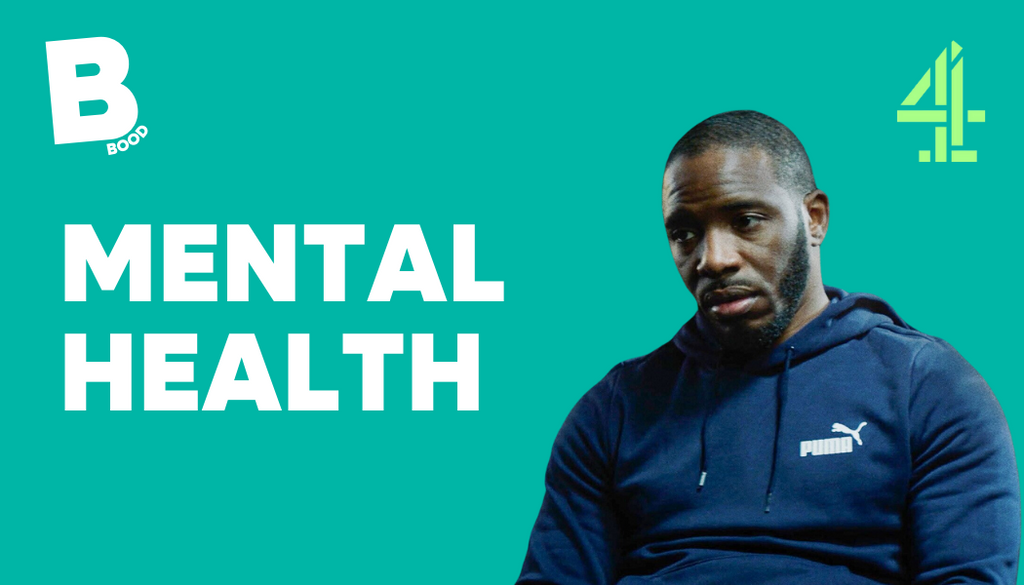Konan: Living with PTSD: A Journey Towards Healing and Mental Health
In this episode of UNTOLD, directed by Tom Besley, we gain intimate and unprecedented access to Konan’s private therapy sessions, who has only recently been diagnosed with PTSD. Konan, one half of award-winning rap duo Krept and Konan, is for the first time confronting his own trauma and guilt brought on by seeing gunmen targeting him, murder his stepfather instead.
Over 300,000 people aged 16-24 are suffering from undiagnosed and untreated post-traumatic stress disorder in the UK, exclusive data analysis and research for Channel 4 has revealed. UNTOLD: Konan - Trapped in Trauma, raises the alarm on what experts say is a crisis in youth mental health across the UK. Meeting some of the thousands of young people suffering from PTSD, Konan learns how difficulties in getting treatment and a lack of understanding of the disorder contributing to a mounting crisis and discovers how treatment can help improve his life.
Post-Traumatic Stress Disorder (PTSD) is a complex mental health condition that affects millions of people worldwide. It can occur in individuals who have experienced or witnessed a traumatic event, leaving a lasting impact on their emotional well-being. This blog post aims to shed light on PTSD, its symptoms, causes, and the available treatment options, emphasizing the importance of seeking help and fostering a supportive environment for those affected.
Understanding PTSD
PTSD is a psychiatric disorder that can develop after a person experiences or witnesses a traumatic event such as physical or sexual assault, war, natural disasters, accidents, or the sudden loss of a loved one. It's important to note that not everyone who experiences trauma will develop PTSD, as the disorder's development depends on various factors, including individual resilience, coping mechanisms, and available support systems.
Symptoms and Impact
PTSD manifests itself through a wide range of symptoms that can severely affect a person's mental, emotional, and physical well-being. These symptoms can be broadly categorized into four clusters:
Intrusive Thoughts and Memories: Individuals with PTSD often experience recurrent and distressing flashbacks, nightmares, or intrusive thoughts related to the traumatic event. These intrusive memories can be triggered by certain cues or reminders, making it challenging for individuals to move on from the traumatic experience.
Avoidance Behaviors: People with PTSD may actively avoid people, places, activities, or situations that remind them of the traumatic event. This avoidance can lead to social isolation, withdrawal from previously enjoyed activities, and a reduced quality of life.
Negative Mood and Cognitive Changes: Individuals with PTSD often experience a persistent negative emotional state, including feelings of guilt, shame, fear, anger, or sadness. They may also develop negative beliefs about themselves, others, and the world around them, leading to a distorted perception of reality.
Hyperarousal and Reactivity: Those with PTSD may exhibit heightened states of anxiety, irritability, hypervigilance, and an exaggerated startle response. Sleep disturbances, difficulty concentrating, and increased aggression or reckless behavior may also be present.
Seeking Help and Treatment
If you or someone you know is experiencing symptoms of PTSD, it is crucial to seek professional help. Mental health professionals, such as therapists or psychiatrists, can provide a diagnosis and develop an individualized treatment plan. The most common treatment approaches for PTSD include:
Psychotherapy: Cognitive-behavioral therapy (CBT), specifically trauma-focused therapy, is highly effective in treating PTSD. It helps individuals identify and challenge negative thoughts, process traumatic memories, and develop healthier coping mechanisms.
Medication: In some cases, psychiatrists may prescribe medications, such as selective serotonin reuptake inhibitors (SSRIs) or other antidepressants, to alleviate symptoms associated with PTSD. These medications can help manage anxiety, depression, and sleep disturbances.
Supportive Resources: Support groups, peer counseling, and educational resources can provide valuable assistance in the recovery process. Connecting with others who have experienced similar traumas can foster a sense of community and reduce feelings of isolation.
Creating a Supportive Environment
Support and understanding from family, friends, and the broader community play a vital role in helping individuals with PTSD navigate their healing journey. Here are some ways we can contribute to a supportive environment:
Educate Yourself: Take the time to learn about PTSD, its symptoms, and the challenges faced by those living with the disorder. This knowledge will enable you to offer informed support and reduce stigma.
Foster Open Communication: Create a safe space for individuals with PTSD to share their experiences and feelings without judgment. Encourage them to seek professional help and remind them that they are not alone in their journey.
Practice Empathy and Patience: Understand that healing from trauma takes time and can be an ongoing process. Be patient, empathetic, and non-judgmental, offering support and encouragement along the way.
Conclusion
Post-Traumatic Stress Disorder is a significant mental health concern that requires attention, understanding, and support. By increasing awareness, advocating for appropriate treatment options, and fostering a compassionate environment, we can contribute to the healing and well-being of individuals living with PTSD. Remember, it is never too late to seek help or offer support, as every positive action can make a difference in someone's life.

